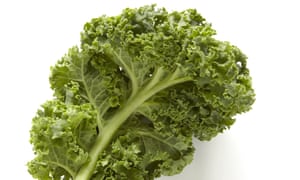1 Pasta makes you fat
As the carb-avoidance craze rages, many are dismayed to see pasta lumped with pappy white bread in the “white and refined” sin bin. Now, a concerted push is on to rehabilitate its nutritional reputation. Is it true that, as pasta company Barilla claims, its unique resistant starch structure makes it more slowly digested than the same amount of flour made into bread? As long as you eat it “al dente”, white pasta does indeed have a glycaemic index comparable with buckwheat or brown rice – so the argument that it gives a steady release of energy that keeps you feeling fuller longer, is plausible. It’s also a whole lot more appetising than a plateful of wholewheat spaghetti.
2 Dates are the new sugar
Thanks to the promotional efforts of “clean-eating” gurus, we can’t move these days without bumping into delicacies sweetened with dates. Are these sticky fruits any better than bad old sugar? If you’re talking about baking, the answer is yes. Weight for weight, dried dates contain about 68% total sugars, as opposed to actual sugar, which is 100%. Dates are also an excellent source of soluble fibre, and have a relatively low glycaemic index: the fibre stops the sugar from causing an insulin spike in your bloodstream. Unlike straight sugar, dates are packed with useful micronutrients: iron, potassium, B vitamins and more. Dried dates do contain much more sugar than the sweetest fruits, but if you’re eating them as a substitute for cakes and confectionery rather than fruit, they’re a good way to lower your sugar consumption and gradually un-sweeten your palate.
3 Kale is a superveg

Current king of the brassicas, kale offers a convincing portfolio of antioxidant, anti-inflammatory and detoxifying micronutrients that appear to reduce our risk of major degenerative diseases, cancer in particular. Is kale nutritionally richer than cabbage or broccoli, or is it just popular because it makes great crisps? Well, kale’s stand-out quality is its impressively high levels of vitamin K, which supports bone health, so it’s great if you’re trying to avoid bone loss and fractures. Plus it’s dead cheap, and grows abundantly pretty much anywhere.
4 Coconut oil is best for frying
Look, almost anything has got to be better for you than the industrially refined, heat-treated, chemically deodorised stuff widely known as vegetable cooking oil; but cold-pressed coconut oil – the solid white stuff that’s sweeping the shelves in wholefood stores – does have lots to commend it. Raw, unrefined coconut oil doesn’t get damaged by oxidisation and go rancid the way other cold-pressed vegetable cooking oils do. It is a naturally resilient oil that stands up to the heat of frying without degrading nutritionally. It is also exceptionally rich in medium-chain fatty acids, which have antiviral, antifungal, and antibacterial effects. Medium-chain fatty acids are immediately converted by your liver into energy, not stored as fat; some research studies suggest that eating foods rich in them can help you lose weight. So far, it looks as if the only negative thing about raw coconut oil is its price.
5 Red meat is a killer
Is Mother Nature a psychopath who designed red meat to shorten the life span of humans? Rich in essential fats, complete protein, vitamins and minerals, red meat is one of the most nutritious foods you can eat. The dodgy dossier against red meat is based on the shakiest type of evidence: observational studies in which researchers look for patterns in data drawn from notoriously unreliable diet questionnaires. It’s a tough morsel for the anti-meat lobby to chew, but a solid health case against red meat has simply not been made. For now, free-range, grass-fed, organic or wild red meat stays on the menu.
6 Bone broth is the new superfood
We’ve been bubbling up bones for soup since the stone age, but with the triumphant opening of the Brodo Broth Company in New York, and the UK patronage of the influential Hemsley sisters, stock made from bones has never felt more cutting edge. Bone broth is a DIY alternative to several expensive food supplements, providing you with minerals such as calcium, magnesium and phosphorus. Dissolved material from cartilage and tendons make it a natural source of chondroitin and glucosamine (sold as supplements for arthritis). It’s super-cheap to make, very satisfying, and the liquid essence of nose-to-tail eating: the frugal use of carcass parts that are all too often wasted.
7 Whole milk is back
Now that the anti-saturated fat consensus is in meltdown, choosing the skinny latte no longer looks like the best option. A robust study published last year found that people who consume full-fat dairy products are less likely to develop “metabolic syndrome”, the combination of diabetes, high blood pressure and obesity associated with greater risk of heart disease and stroke. Time to ditch white water and return to whole milk, organic, unhomogenised and – if you can get it – raw.
8 Kimchi boosts your immune system
Fermentation is all the rage now that intense scientific interest is trained on the microbiome, or the population of bacteria in our guts. Fermented (cultured) foods teem naturally with lactic acid bacteria. The thinking is that, by eating them, we can reintroduce a healthier bacterial variety to our microbiomes, which have been depleted by antibiotics and sterile processed food. The health benefits of cultured vegetables, from eastern European sauerkraut to Korean kimchi, are not in question – but the efforts of newcomers to this ancient skill can be challenging. There are some grisly experiments out there (kimchi pizza, anyone?). Your microbiome might like it, but will your tastebuds?
Source: Read Full Article
